

Scientists dream of describing new species, not writing their obituary and epitaph, knowing that they are gone forever #ornithology

Scientists dream of describing new species, not writing their obituary and epitaph, knowing that they are gone forever #ornithology
A study of 70k people across 11 countries finds relative income predicts happiness, education predicts health 💲😃🎓🩺
www.nature.com/articles/s41... @nathumbehav.nature.com

A study of 70k people across 11 countries finds relative income predicts happiness, education predicts health 💲😃🎓🩺
www.nature.com/articles/s41... @nathumbehav.nature.com
A new study shows our brains are tuned to recognise style, like Monet’s brushstrokes, separately from content. Style is not just art, it is perception.
🔗 www.nature.com/articles/s41...
#SciComm #Cognition 🧪

A new study shows our brains are tuned to recognise style, like Monet’s brushstrokes, separately from content. Style is not just art, it is perception.
🔗 www.nature.com/articles/s41...
#SciComm #Cognition 🧪
My love letter to social science genetics: communities.springernature.com/posts/a-love...

My love letter to social science genetics: communities.springernature.com/posts/a-love...
In this Correspondence, Zackary Dunivin and @psmaldino.bsky.social warn that current algorithms exacerbate disparities in science, and make the case for greater user control. rdcu.be/eASFa

In this Correspondence, Zackary Dunivin and @psmaldino.bsky.social warn that current algorithms exacerbate disparities in science, and make the case for greater user control. rdcu.be/eASFa
Megan Peters @ucirvine.bsky.social writes about her process, offering some great tips (and traps to avoid!)
rdcu.be/eAmL2

Megan Peters @ucirvine.bsky.social writes about her process, offering some great tips (and traps to avoid!)
rdcu.be/eAmL2
We need new science leaders to engage with policymakers & the public to create a shared knowledge-intensive understanding of the calamitous consequences of nuclear war 🧪
www.nature.com/articles/d41...

We need new science leaders to engage with policymakers & the public to create a shared knowledge-intensive understanding of the calamitous consequences of nuclear war 🧪
www.nature.com/articles/d41...
From this month, we will be publishing pieces specifically focused on the personal side of research. And the first is:
Q&A with Aster Gebrekirstos: "Creating resilience through agroforestry" rdcu.be/exl7A
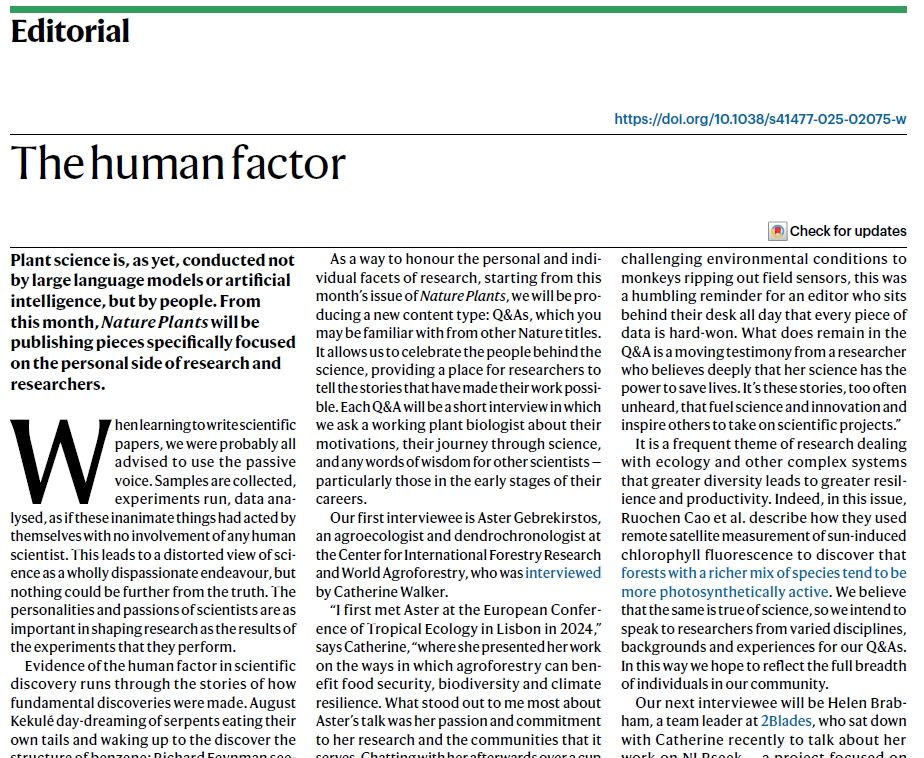
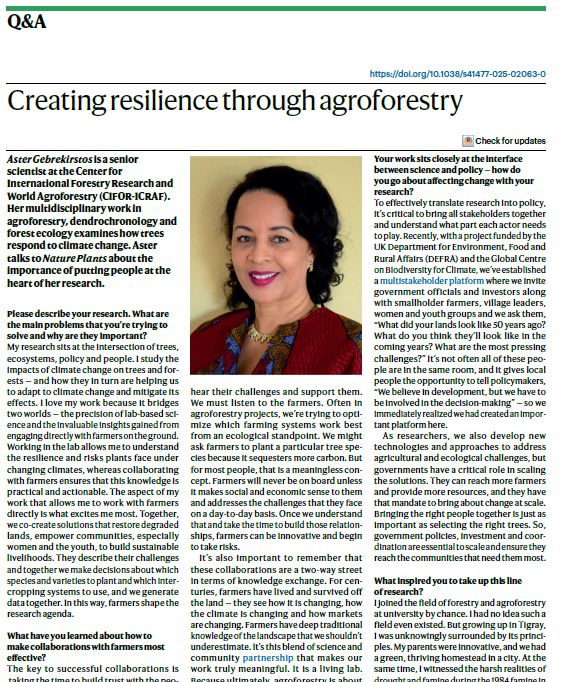
From this month, we will be publishing pieces specifically focused on the personal side of research. And the first is:
Q&A with Aster Gebrekirstos: "Creating resilience through agroforestry" rdcu.be/exl7A
(Last year I was so lucky to visit them together with the team behind this brilliant work!)

(Last year I was so lucky to visit them together with the team behind this brilliant work!)
Bottom-line, we estimate $46B in total economic loss, 202K lost jobs, and impacts in communities nationwide.
Interactive map and shareable report:
scienceimpacts.org/fy26
a 🧵
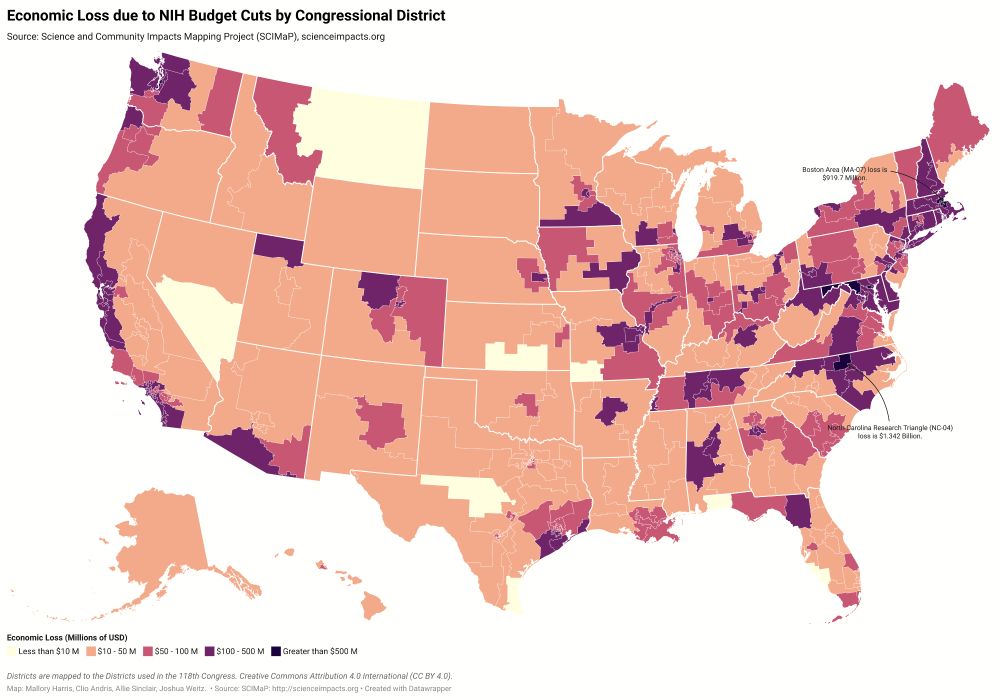
Bottom-line, we estimate $46B in total economic loss, 202K lost jobs, and impacts in communities nationwide.
Interactive map and shareable report:
scienceimpacts.org/fy26
a 🧵




How? By working as hard as we can to restore awe (about science!), stability and certainty for the next generation.
rdcu.be/ep9gi

How? By working as hard as we can to restore awe (about science!), stability and certainty for the next generation.
rdcu.be/ep9gi
In this thought-provoking piece grounded in global data, Frank Fernandez and Neal Hutchens explain why this will have significant consequences for innovation & scientific breakthroughs.
rdcu.be/ep9bp

In this thought-provoking piece grounded in global data, Frank Fernandez and Neal Hutchens explain why this will have significant consequences for innovation & scientific breakthroughs.
rdcu.be/ep9bp
All trainees need 3 things to thrive. In the US, those things have been ripped away. Let's brainstorm and fight to get them back.
(share link):
www.nature.com/articles/s41...
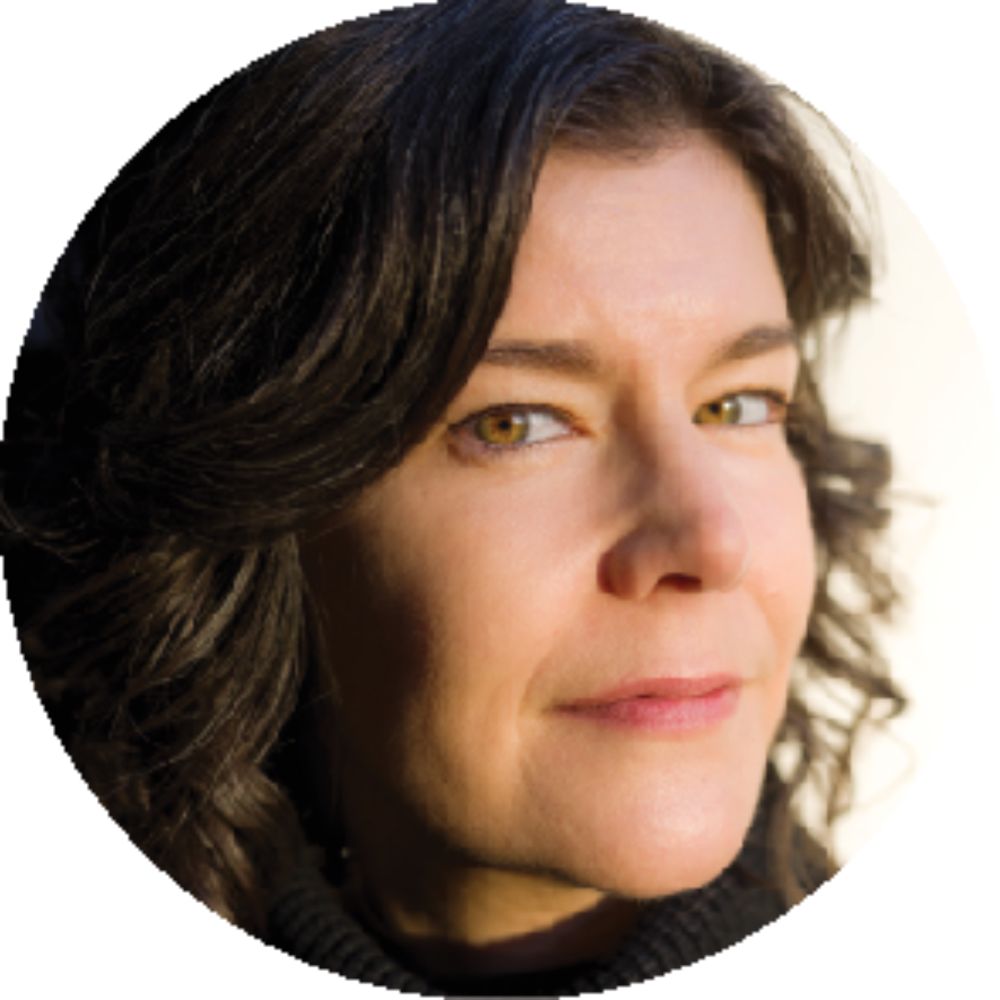
All trainees need 3 things to thrive. In the US, those things have been ripped away. Let's brainstorm and fight to get them back.
(share link):
www.nature.com/articles/s41...
A recent study in Nature suggests that a pivot to a new field isn't great for impact - but it's not clear why.
Read the paper here - rdcu.be/epFQd
And this great commentary - www.nature.com/articles/d41...

A recent study in Nature suggests that a pivot to a new field isn't great for impact - but it's not clear why.
Read the paper here - rdcu.be/epFQd
And this great commentary - www.nature.com/articles/d41...
In this piece he reflects on his experiences, and the continued impacts of hostile US policies.
rdcu.be/epAMd
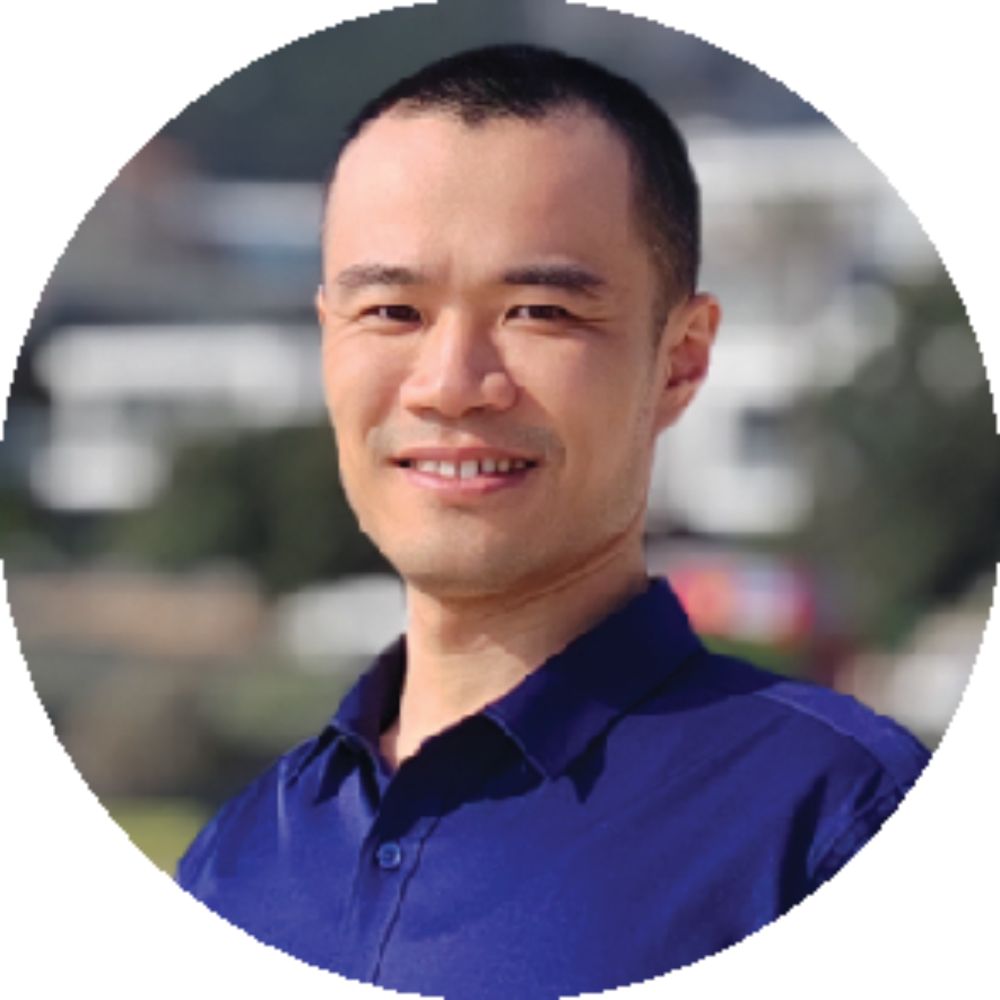
In this piece he reflects on his experiences, and the continued impacts of hostile US policies.
rdcu.be/epAMd
Their interactive platform SCIMaP visualises these impacts: scienceimpacts.org
rdcu.be/eo3Wo

Their interactive platform SCIMaP visualises these impacts: scienceimpacts.org
rdcu.be/eo3Wo
rdcu.be/eo3J6

rdcu.be/eo3J6
-> Talk about your limitations, use correlation terminology when not testing causation, document your ethical considerations, write FAQs
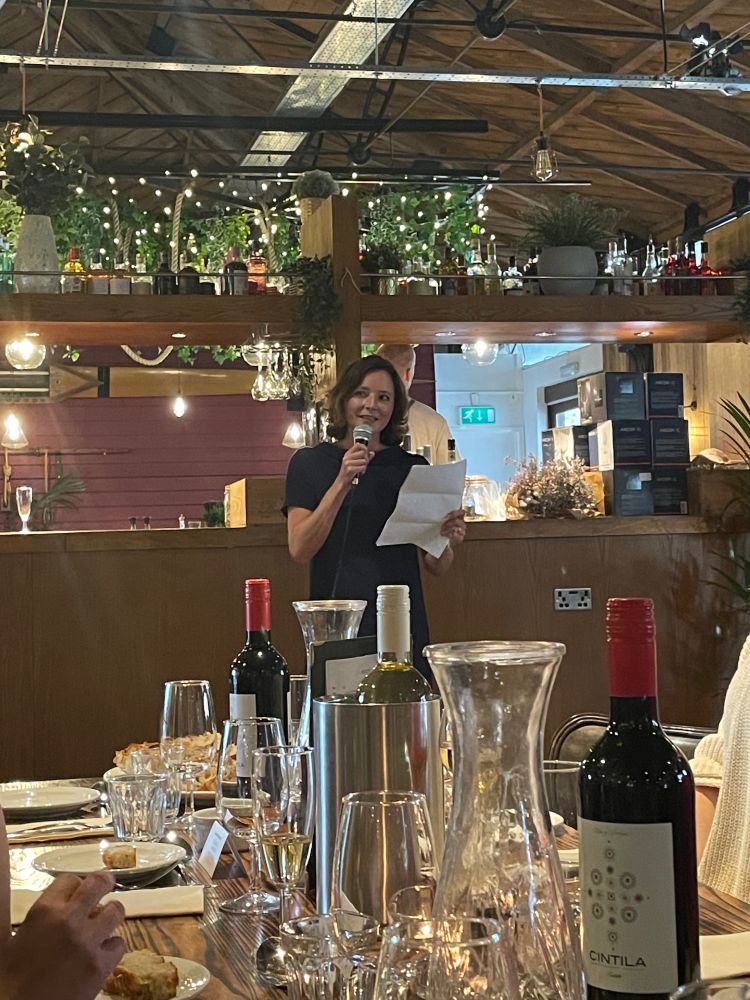
Today I am resigning from the National Science Board and the Library of Congress Scholars Council.
I wrote about my decision in TIME.
time.com/7285045/resi...

Today I am resigning from the National Science Board and the Library of Congress Scholars Council.
I wrote about my decision in TIME.
time.com/7285045/resi...
We analyse nationally representative UK data from 3,340 adolescents (aged 11–19) to examine how social media use differs between those with and without mental health conditions. 🧵
www.nature.com/articles/s41...
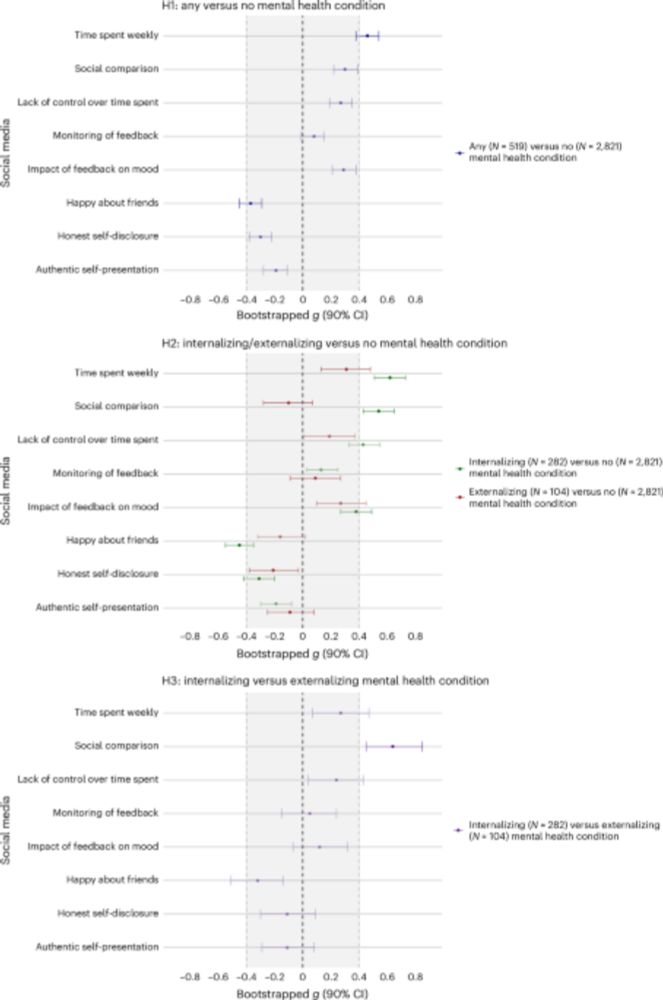
We analyse nationally representative UK data from 3,340 adolescents (aged 11–19) to examine how social media use differs between those with and without mental health conditions. 🧵
www.nature.com/articles/s41...
This new Perspective offers a great overview of scientific approaches to measuring well-being, and a compelling case for multidimensional measurement.
www.nature.com/articles/s41...
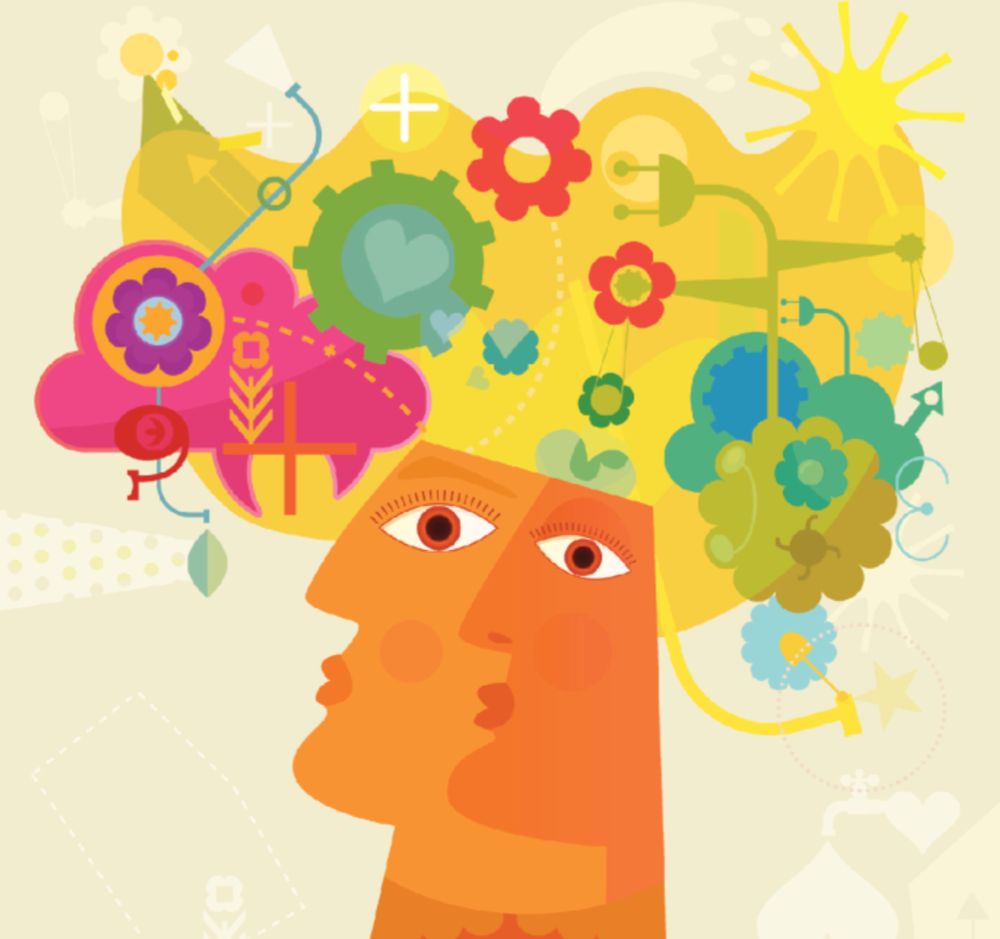
This new Perspective offers a great overview of scientific approaches to measuring well-being, and a compelling case for multidimensional measurement.


